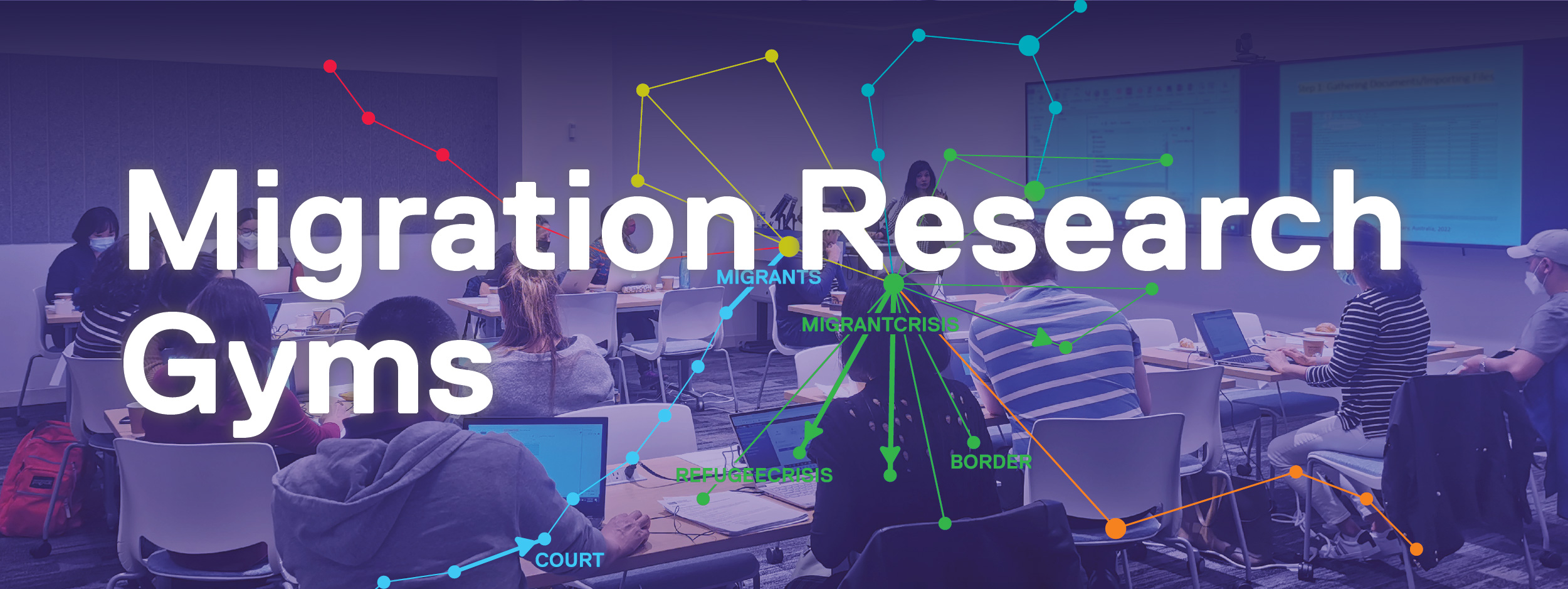The method of narrative biographic interview: Nuances of data collection and analysis
- Date
- October 21, 2022
- Time
- 9:00 AM EDT - 1:30 PM EDT
- Location
- In person at CERC Migration office

About the workshop:
This workshop offered detailed knowledge and practical training in the narrative biographic method especially - but not exclusively - in its application to migration studies. After a brief overview of the rationale for the narrative biographic inquiry and its specific and unique role in social sciences, the workshop focused on the art of the narrative biographic interview and related ethical issues. This was followed by training in narrative biographic analysis. Demonstrated analytical techniques included the analysis of turning points and epiphanies, biographic re-contextualization and creation of individual and compound narratives.
In this workshop, participants learned:
- What is the difference between narrative research and narrative-biographic research;
- How to conduct a narrative biographic interview - and, particularly, how to manage unexpected topics;
- How to interview people from vulnerable social groups (such as women, refugees, irregular migrants) about their lives and on sensitive issues (such as religion, race, sex, violence, trauma and legal status);
- What ethical principles and procedures underpin the processes of informant recruitment, narrative-biographic data collection and analysis; and
- How to analyse the data collected from interviews with the purpose to create reflexive individual and compound narrative biographies.
How this workshop was delivered:
This workshop was created for graduate students, researchers who already have experience in the narrative-biographic inquiry, as well as for novices in this method. Prior knowledge and some experience of qualitative interviewing and qualitative data analysis was recommended but not required. The workshop used a seminar format, combining lecture-based presentations with practical training. Hands-on exercises and team-work discussions allowed participants to practice new knowledge. A list of recommended readings was provided in advance, and the attendants were encouraged to bring their own interview transcripts if available.
9 AM – 10:10 AM Narrative-biographic inquiry (NBI): Overview and Welcome
- NBI and its purpose
- Main NBI principles: turning points and epiphanies
- Tips for designing a semi-structured interview guide
10:10 AM – 11 AM Ethical Issues: Vulnerable subjects and sensitive topics
- Informant recruitment
- Topics and words to avoid
- Incidental/unexpected themes
- Interviewing vulnerable people
- Rapport: Distance or intersubjectivity?
11 AM – 11:20 AM Group Discussion
Participants are invited to ask questions and share comments on the material presented.
11:20 AM – 11:30 AM Break
11:30 AM – 12:15 PM Interactive Exercise
Participants will be divided into groups. One person in each group will be assigned the role of an interviewer and another person the role of an interviewee to conduct a mock interview while other group members will observe the process. After the exercise, all groups will return to the main group and share their reflections.
12:15 AM – 12:45 PM Lunch
12:45 AM – 1:15 PM Narrative-biographic analysis
- Monomyth: a structure to look at turning points and epiphanies
- Narrative thematic analysis in NBI
- Making compound narrative biographies – combining the micro and the meso-macro levels
- Anonymization and ethics
1:15 – 1:30 PM Discussion and Wrap up
Participants are invited to ask questions on the material presented. They will be also asked to briefly reflect on how these analytical techniques can be applied to their previous interactive exercise.
About the workshop leader:
Irina Isaakyan is a Senior Research Associate, CERC Migration, Toronto Metropolitan University. Irina holds a PhD from the University of Edinburgh and an MA from the University of Minnesota. She is an experienced university teacher and researcher with nuanced knowledge of the narrative biographic method, particularly in its application to research on diaspora, nationalism and migrant identities.